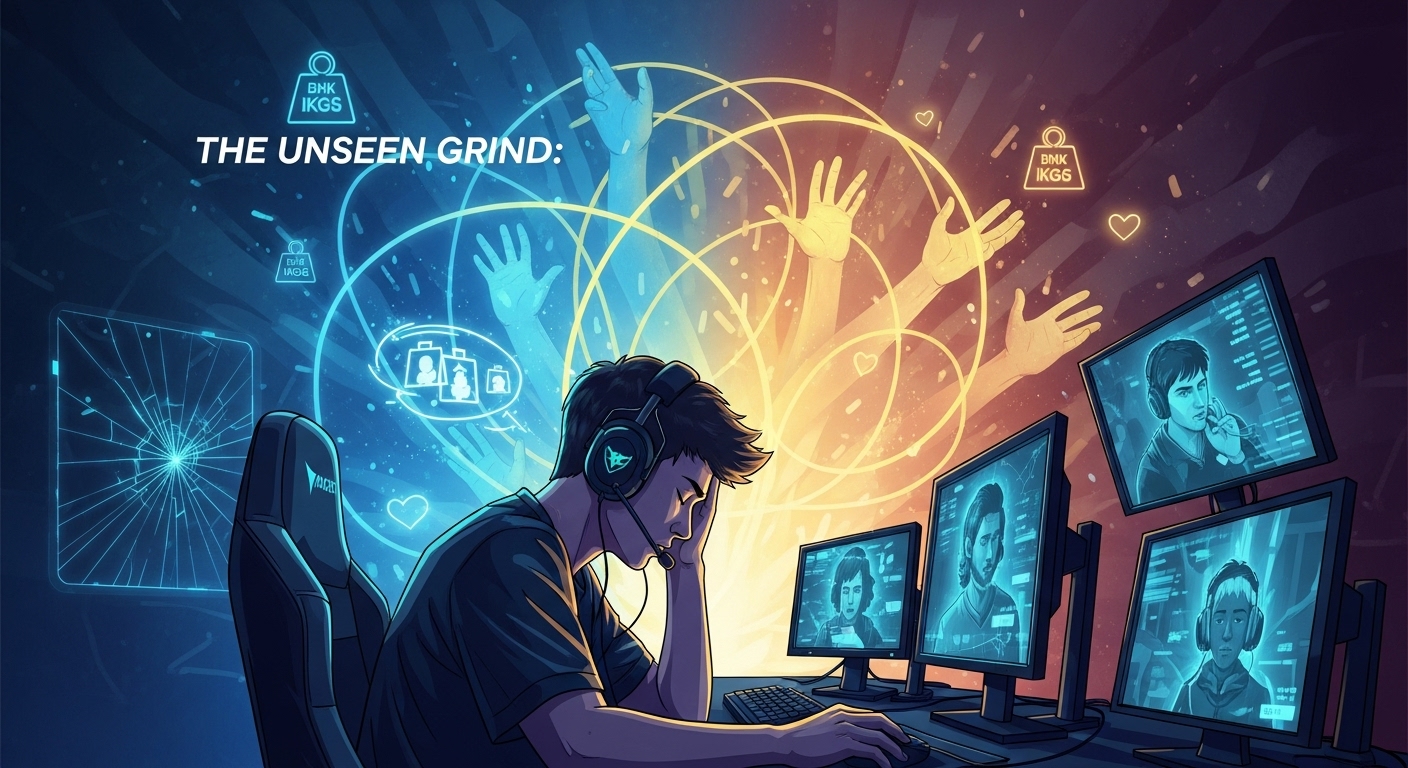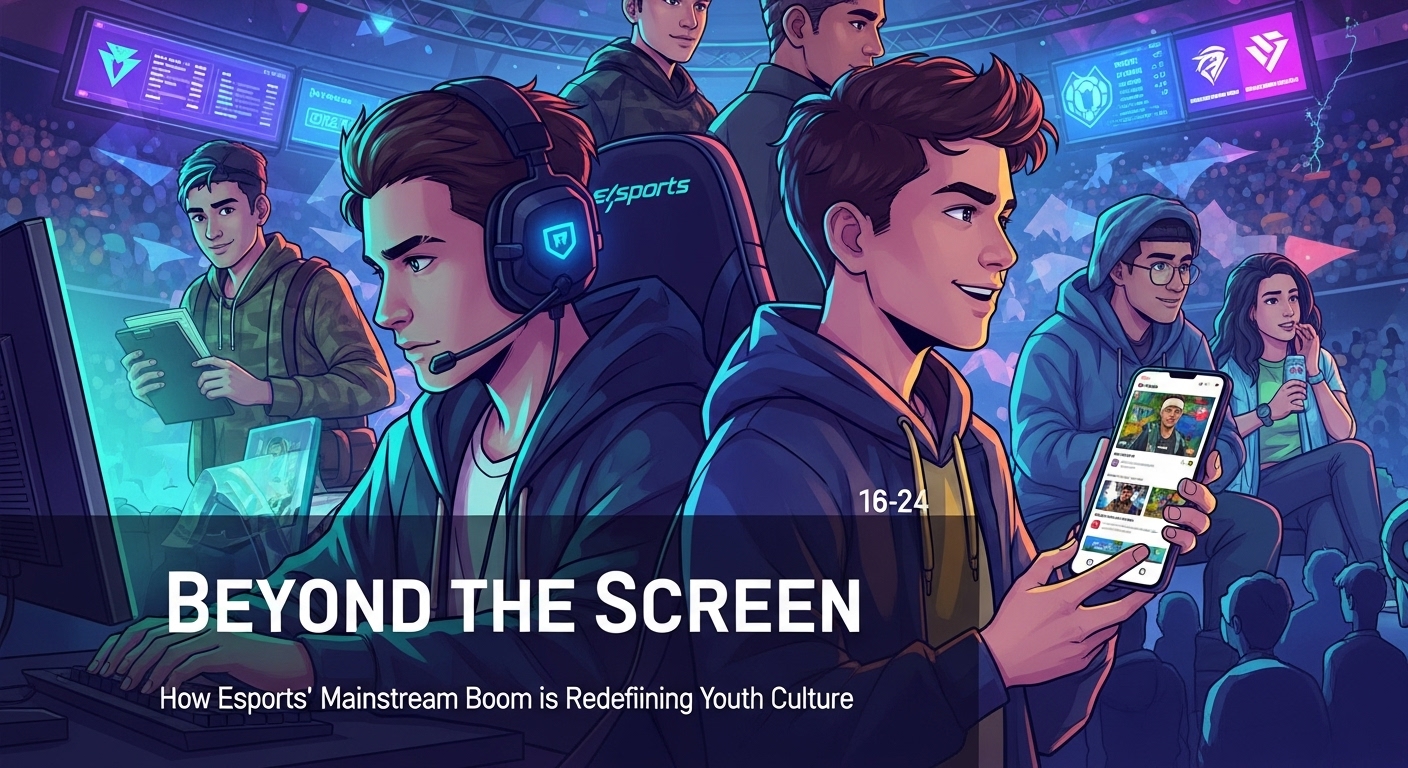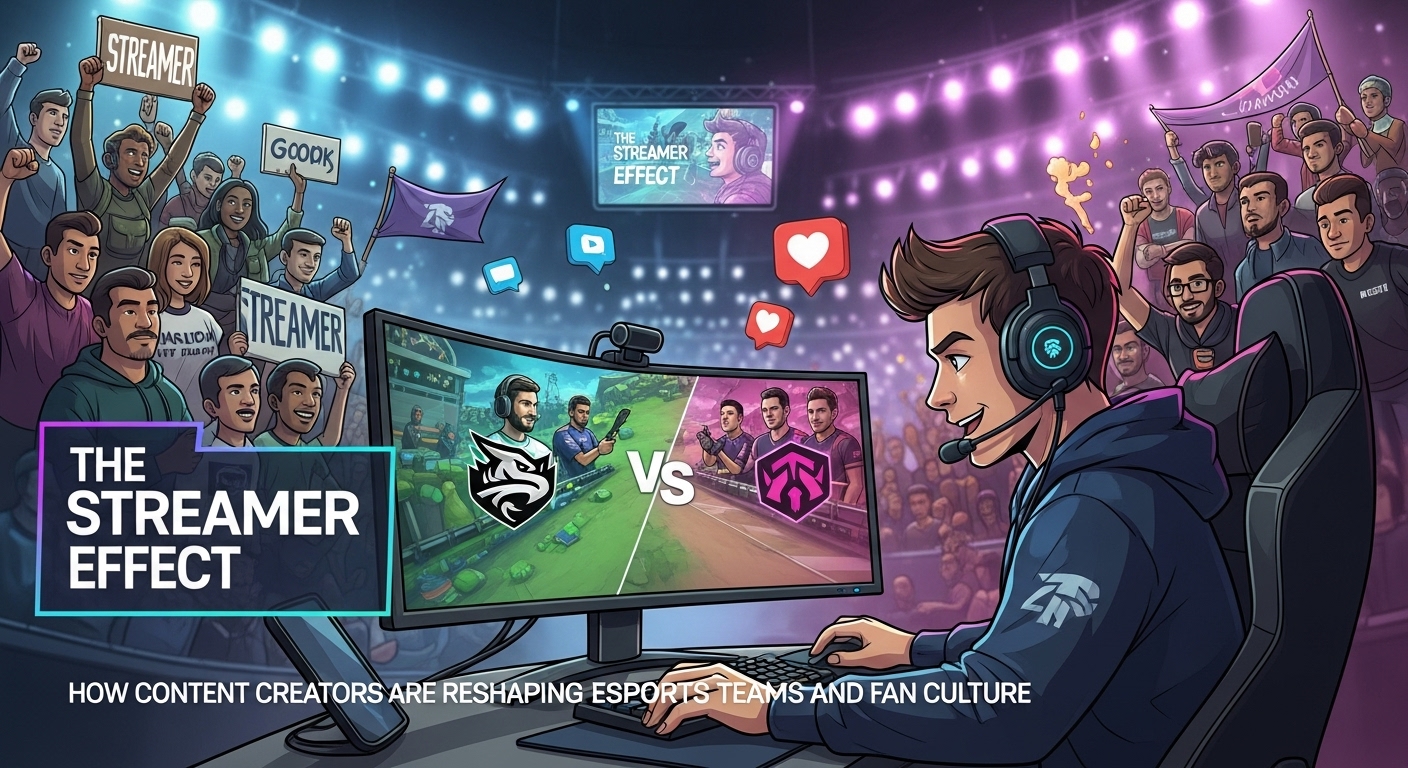Beyond the Bright Lights: Unmasking the Pro Gamer’s Reality
When we tune into a major esports tournament, we see the spectacle: massive arenas roaring with thousands of fans, dazzling light shows, and players executing pixel-perfect plays for millions of dollars. It’s a world of glory, fame, and incredible skill. We see the victory, the trophy hoist, the triumphant roar. What we don’t see is the grind—the silent, relentless, and often brutal reality that exists behind the screen. This is the unseen grind, a core component of the modern e-sports & culture that poses significant mental health challenges for its brightest stars. The journey to the top is paved not just with practice, but with immense pressure, sacrifice, and a psychological toll that is only now beginning to be openly discussed and addressed.
For every clutch play, there are hundreds of hours of repetitive drills. For every moment of on-stage camaraderie, there are periods of intense isolation. The life of a professional esports athlete is a paradox; they are globally connected yet often locally isolated, celebrated for their virtual prowess while their real-world well-being can hang by a thread. This article delves into the shadows of the digital arena, exploring the prevalent mental health challenges in pro gaming and the crucial support systems being built to sustain the players who define this electrifying industry.
The High-Stakes Gauntlet: Pressures of the Professional Circuit
The transition from a talented amateur to a salaried professional is a seismic shift. The game is no longer just a passion; it’s a high-pressure job with contracts, performance metrics, and the constant threat of being replaced. This professionalization has brought incredible growth but has also created an environment rife with psychological stressors.
The Crushing Weight of Performance Anxiety
Imagine knowing that a single misclick, a moment of hesitation, could cost your team a championship title and a seven-figure prize pool. This is the reality for pro players. The pressure to perform consistently at a superhuman level is immense. It comes from all directions: from coaches and management who have invested heavily in them, from sponsors whose brands they represent, from teammates who rely on them, and from a global fanbase that can be adoring one moment and viciously critical the next. This constant scrutiny breeds performance anxiety, a debilitating fear of failure that can lead to shaky hands, clouded judgment, and a self-fulfilling prophecy of poor play.
The Grueling 12-Hour Day: More Than Just a Game
The stereotype of a gamer lounging around is completely detached from the reality of a pro’s schedule. A typical day can involve 10-14 hours of structured practice. This isn’t just mindlessly playing the game. It includes multiple blocks of team scrimmages (scrims), intensive video-on-demand (VOD) reviews to analyze mistakes, one-on-one coaching sessions, and hours of solo queue to hone individual mechanics. This regimen leaves little time for a social life, hobbies, or even basic self-care like proper nutrition and exercise. When your entire life revolves around a single game, the line between passion and obsession blurs, creating a perfect storm for mental and physical exhaustion.
Navigating the Minefield of Public Scrutiny and Online Toxicity
Professional athletes in traditional sports face criticism, but esports players exist in a uniquely hostile environment. Their primary arena of interaction is the internet, a space notorious for its lack of accountability. Every match is streamed, every decision is dissected on Reddit, Twitter, and Twitch chat in real-time. A bad game can result in a torrent of abuse, hate mail, and even death threats. This constant barrage of negativity can erode self-confidence, trigger anxiety, and create a sense of paranoia. Players are forced to develop an incredibly thick skin or risk being consumed by the toxicity that is, unfortunately, a persistent part of online e-sports & culture.
The Common Afflictions: Identifying the Mental Health Battles
The unique pressures of the pro gaming world manifest in several common mental health challenges. Recognizing these issues is the first step toward building a healthier ecosystem for players.
Burnout: When the Passion Fades to Exhaustion
Burnout is a state of emotional, physical, and mental exhaustion caused by prolonged or excessive stress. In esports, it’s an epidemic. The relentless practice schedules, the pressure to win, and the lack of an ‘off-season’ for many games mean players are always ‘on.’ They play the same game for hours on end, day after day. Eventually, the game they once loved can feel like a prison. We’ve seen numerous high-profile players, like League of Legends’ Uzi or Dota 2’s ana, take extended breaks or retire early, citing complete mental and physical exhaustion as the primary reason.
Anxiety and Depression: The Silent Opponents
The high-stakes, unstable nature of an esports career is a breeding ground for anxiety disorders. Players worry constantly about their performance, their job security, and their future. This is compounded by the social isolation many experience, often moving far from home to live in a team house with colleagues who are also competitors. This environment can exacerbate or trigger depression. The highs of winning are incredible, but the lows of losing, being benched, or being dropped from a team can be devastating, leading to feelings of worthlessness and despair that are difficult to navigate alone.
Identity Crisis: Life After the Game
The average career of an esports professional is notoriously short, often ending in their mid-to-late twenties. These individuals have dedicated their entire adolescent and young adult lives to a single pursuit. When their reflexes slow or the passion wanes, they are forced into retirement at an age when most people are just starting their careers. This can lead to a profound identity crisis. Who are they without the game? This question looms large, and the lack of transferable real-world skills and formal education can make the transition to a ‘normal’ life incredibly daunting and stressful.
A Paradigm Shift: The Rise of Support Systems
Thankfully, the conversation is changing. As the industry matures, organizations, players, and the community are recognizing that player well-being is not a luxury but a necessity for sustainable success. A robust network of support is slowly being woven into the fabric of the e-sports & culture.
The In-House Experts: Sports Psychologists and Performance Coaches
Top-tier organizations like Team Liquid, Cloud9, and Astralis are leading the charge by integrating mental health professionals into their staff. Sports psychologists and performance coaches work with players on stress management, communication, focus, and building mental resilience. They provide a confidential outlet for players to discuss their struggles and develop coping mechanisms, treating mental conditioning with the same seriousness as strategic coaching.
Player-Led Advocacy: Breaking the Stigma
Perhaps the most powerful force for change has come from the players themselves. Icons like Søren ‘Bjergsen’ Bjerg and Olof ‘olofmeister’ Kajbjer have openly discussed their struggles with burnout and performance pressure. By sharing their vulnerabilities, they have helped to dismantle the stigma surrounding mental health in a culture that has often prized stoicism and ‘toughing it out.’ Their courage has given countless other players, both professional and amateur, the permission to admit they are not okay and to seek help.
Third-Party Resources and Charities
Beyond the team infrastructure, dedicated organizations are emerging to support gamer mental health. Charities like CheckPoint and Rise Above The Disorder provide resources, support, and mental healthcare to gamers around the world. They create content, run workshops, and connect individuals with qualified therapists who understand the unique context of the gaming world, ensuring that help is available even for those outside the top-tier professional ecosystem.
Conclusion: Investing in the Player, Not Just the Game
The world of professional esports is a captivating spectacle of human skill, strategy, and dedication. But for it to have a sustainable and healthy future, we must look beyond the gameplay and focus on the human beings at the controls. The unseen grind is real, and its mental health consequences are significant. The shift towards integrating robust support systems, fostering open conversation, and destigmatizing mental health struggles is not just a positive trend; it is essential for the longevity of the industry and the well-being of its athletes. As fans, as organizations, and as a community, our greatest investment must be in the players themselves. By championing a healthier e-sports & culture, we ensure that the bright lights of the main stage illuminate not just incredible talent, but healthy, resilient, and supported individuals ready to push the boundaries of the game for years to come.


